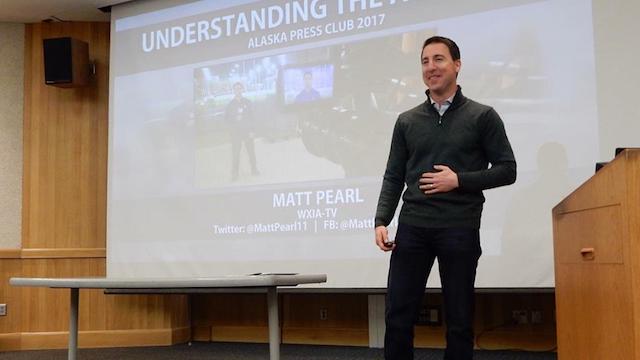This year I began writing regular columns for the NPPA’s News Photographer magazine. Here is my first piece, discussing how my journalistic efforts have never been restricted to my work in the newsroom.
My business card says I’m a reporter. So does my voice when I call a potential interview subject. I want to introduce myself with the simplest, most authoritative description of what I do for employment. “Reporter” meets that threshold.
But it doesn’t feel complete. Like most of my colleagues in journalism, I stopped doing one job long ago.
Yes, I am a reporter. For nearly nine years, I have produced packages, presented live shots, and covered everything from the city council to the Super Bowl for WXIA-TV in Atlanta.
But I am also a photographer. I shoot my own stories and have done so since entering the business as a one-person sports department in Sioux City, Iowa.
I am an editor. I have swung from tape-to-tape to Avid Newscutter to Edius 8.0. I can prepare a 90-second report in 20 minutes, but I’d rather spend hours – and sometimes days – poring over a four-minute masterpiece.
I am a graphic artist. For years, Photoshop intimidated me. This past year I pushed myself to learn the basics. Same with After Effects. I produce animations and creative presentations that slide into various stories.
I am a social media user and digital advocate. I need to be. Facebook didn’t exist when I entered the business. Today it delivers more than 90% of my station’s page views, so I must include it in my workflow. And it pays off.
The roles continue outside of the newsroom. I am a blogger, writing weekly entries about the journalism world for my Telling the Story blog since 2013. I am a podcaster, clearing 60 episodes of long-form interviews with luminaries in the field. I am a student, working towards an MFA in narrative nonfiction at the University of Georgia’s journalism school. I am a speaker, giving presentations at multiple conferences and workshops every year. (I also co-directed one – the NPPA Southeast Storytelling workshop – in 2016.) I am even an author. I spent two years writing, editing, and finding a publisher for The Solo Video Journalist, a how-to guide for one-person crews that has become required reading for broadcast classes at various colleges.
With this piece, I add another title: magazine columnist. I did not envision it, but I welcome the privilege and opportunity to reach and spotlight my peers and fellow NPPA members.


